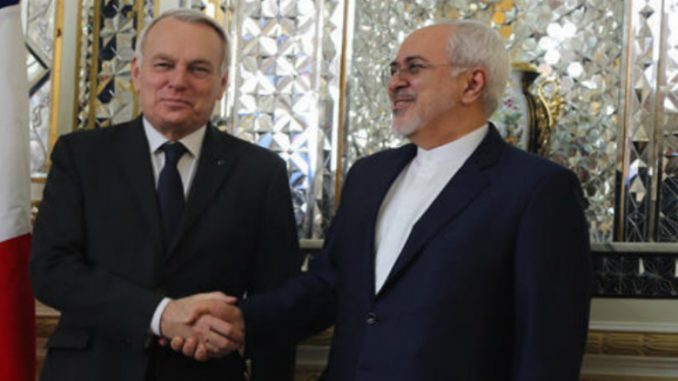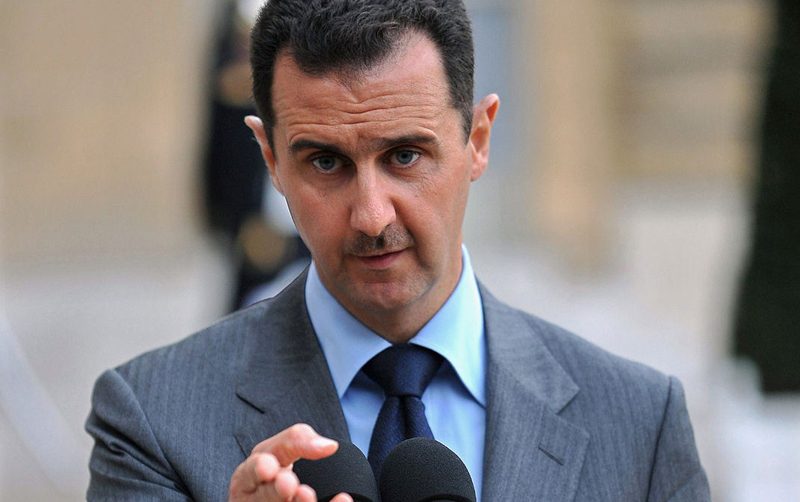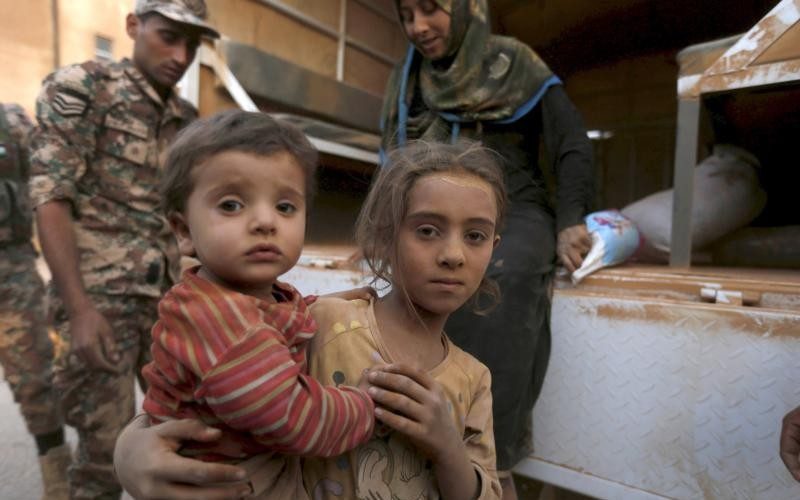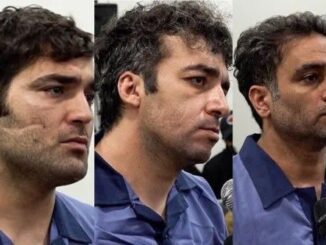
The European Union is approaching Iran to signal to its commitment to the nuclear deal despite Trump’s latest remarks, and holding out the promise of its economic payoff ahead of May 19 presidential polls, EU diplomats said.
Iran made a historic nuclear deal with P5+1 powers in 2015, in which Tehran agreed to amend its nuclear output in order to lift all nuclear-related economic sanctions, freeing up tens of billions of dollars in oil revenue and frozen assets.
After lifting the sanctions, Iranian president Hassan Rouhani visited Europe and made deals that worth billions of dollars. European companies started looking for investment opportunities in the growing Iranian market.
Rouhani won the presidency in 2013 with the backing of mainly of young people and women. He promised to bring Iran out of its international isolation and create a freer society.
But many ordinary Iranians have lost faith in him because he has not been able to improve the economy despite the lifting of sanctions in January last year under the nuclear deal.
In addition, Iran’s Supreme Leader Ali Khamenei and his hardline loyalists, have criticized Rouhani’s policy of rapprochement with the West, arguing the 2015 nuclear accord had not yielded the benefits he promised.
Trump’s latest remarks made the situation worse. Before his election, he said that the nuclear deal is the worst deal ever and he will work on canceling it. Recently, his administration said that they are reviewing the terms of the deal and working on making them more strict.
The EU partners became worried about the consequences of these steps on the Iranian elections, and sought, therefore, to give Iran more confidence and back the election of moderate candidates.
EU seeks to give Iran confidence
Europe’s energy commissioner is leading more than 50 European firms in a business forum in Tehran over the weekend – the latest sally to help knit new trade ties in the 16 months since Iran curbed its nuclear program in exchange for relief from sanctions.
bore the brunt of the oil embargo on Iran and stand to gain the most from a thaw they view as a victory for European diplomacy.
Meeting with Iran’s atomic chief Ali Akbar Salehi, Commissioner Miguel Arias-Canete echoed the EU’s mantra that it is “fully committed” to the 2015 deal and expects the same from all other parties.
But the bloc’s leverage remains limited – particularly if it is not able to shield European firms from the risk of remaining U.S. sanctions and encourage big banks to reverse over a decade of Iran’s exclusion from the international financial system.
The latter was a theme of another big conference in Tehran on Saturday attended by Germany and Iran’s central banks.
Some Western companies have returned – plane makers Airbus and Boeing and carmakers Peugeot–Citroen and Renault – but much more have hung back, fearing Trump will tighten the screws on an already complex set of rules for engaging with Iran.
The pace and scale of Western investment are at the heart of a challenge by hardline rivals of pragmatist President Hassan Rouhani, who is seeking a re-election in May.
EU diplomats voiced concern that a more confrontational stance by the Trump administration could empower Iran’s hardliners ahead of the elections – although there is no sign the United States intends to walk away from the deal.
EU diplomats say they share U.S. concerns over Iran’s human rights record, its ballistic missiles tests, its funding of blacklisted militant groups and its support for Syrian President Bashar al-Assad.
“We disagree that we have to address these issues by ditching the (nuclear) deal,” one EU diplomat told Reuters. “This will only empower those (in Iran) with a more confrontational stance – bring out the worst in the system.”
Therefore, the EU diplomats are caught in a balancing act between the two long-time rivals.
More economic relations
In recent months, European leaders have been frequent visitors to Tehran with businessmen in toe – in an effort to keep alive the 2015 accord, which also has the support of Russia and China, rivals for influence in the Islamic Republic.
The bloc’s trade with Iran has partially recovered – much of that due to oil exports from Iran in what one EU official called “a direct incentive to stick to the deal.”
The International Monetary Fund this year applauded Iran’s “impressive recovery”, with growth expected over 6 percent for the last 12 months and low inflation – a record that Rouhani has been keen to defend.
But the hope for a boom since the EU and United Nations sanctions over Iran’s nuclear program were lifted a year ago has been hampered by separate U.S. measures in place over Iran’s missile program.
“The Europeans want to at least create the optical impression they are politically invested in this deal working,” said Ellie Geranmayeh of the European Council on Foreign Relations. “Even if from a commercial perspective, companies are essentially on hold.”
The risk of falling afoul of U.S. measures has been enough to persuade major Western banks to stay away from Iran, and Tehran accuses Washington of undermining the nuclear deal by scaring investors away from Iran.
While acknowledging domestic criticism, Salehi told reporters Tehran will remain committed to the JCPOA regardless of the outcome of next month’s vote.
There are also signs that the EU’s firm stance has given U.S. officials pause, with senators saying they delayed a bill to slap new sanctions on Iran due to worries over how the bloc would react and the Iranian presidential elections.



